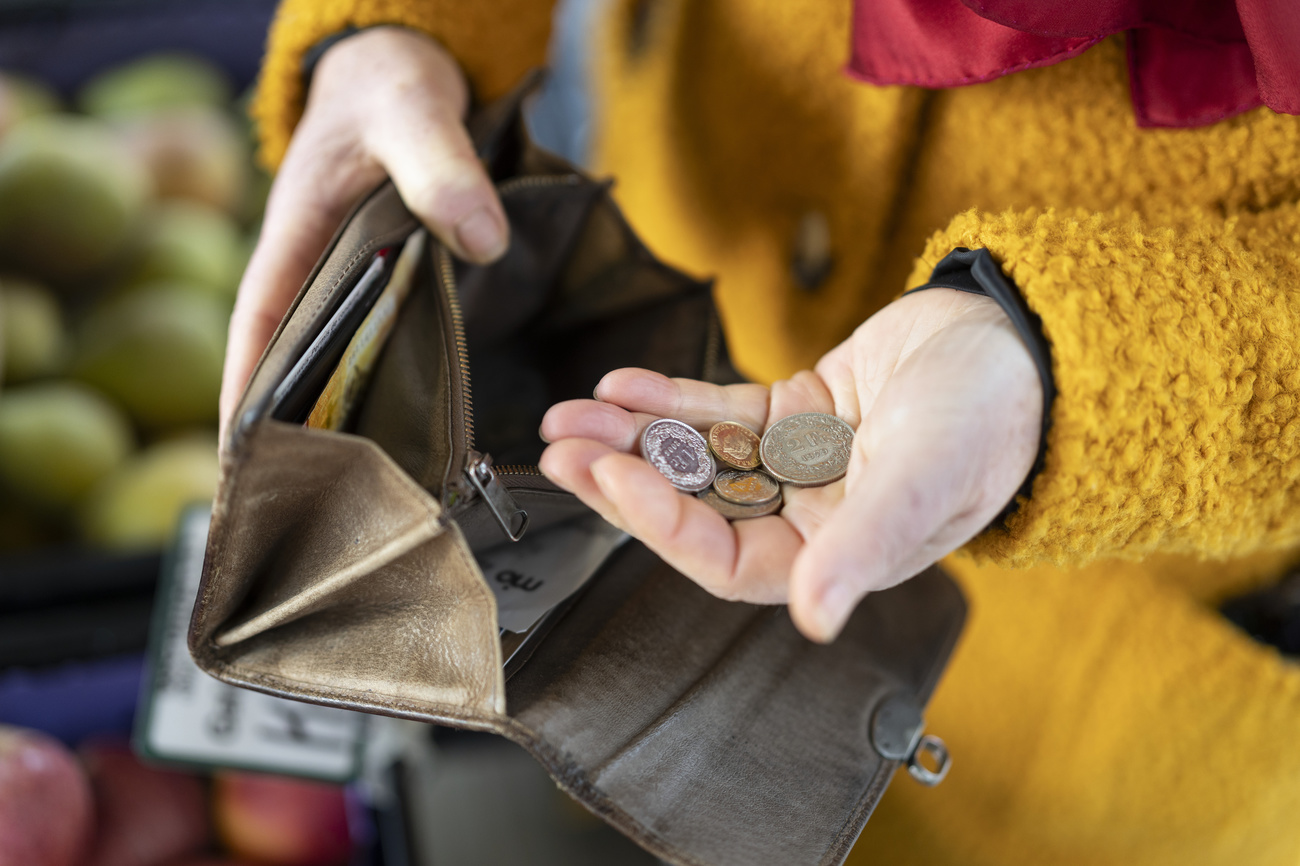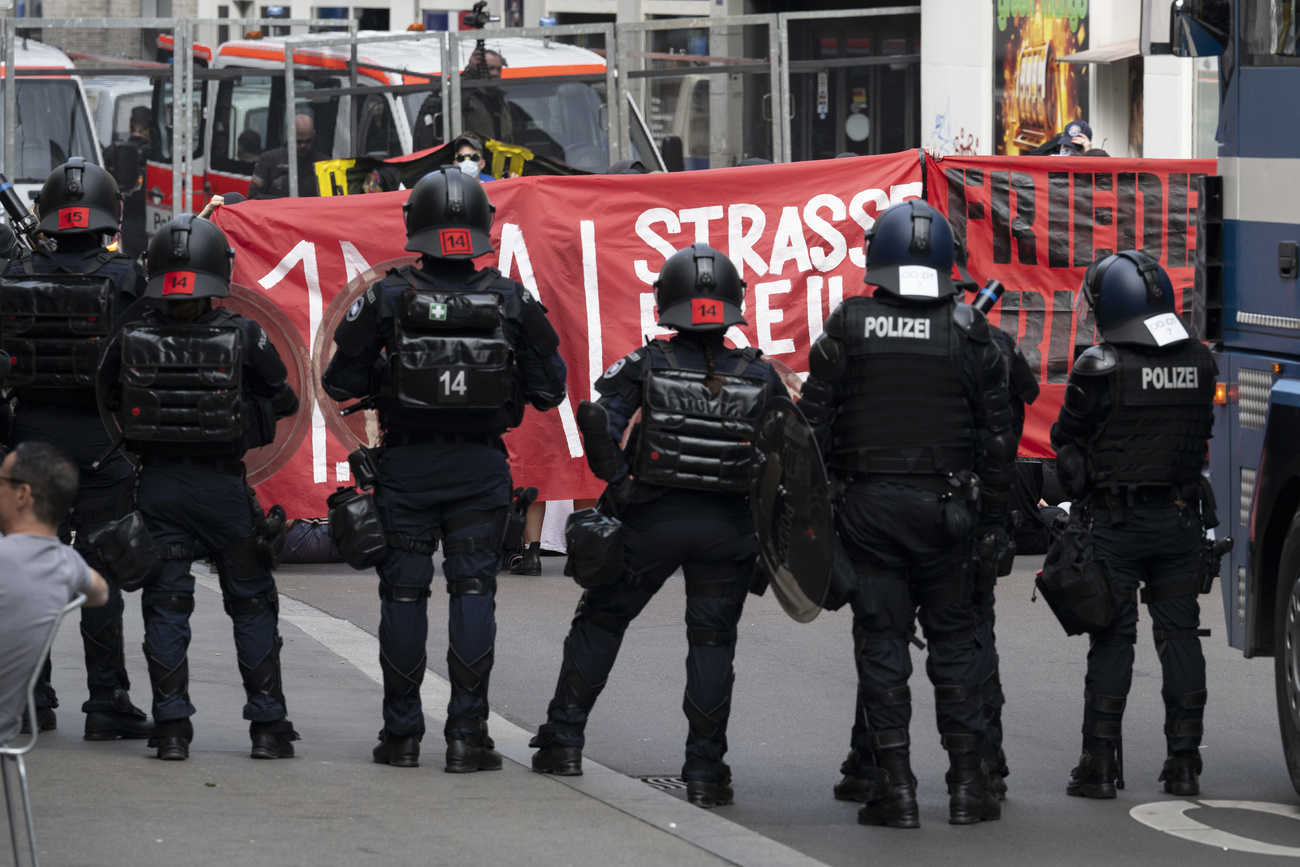Swiss highlight diplomatic approach over Iran

Switzerland has acknowledged a new United States intelligence report that plays down the Iran nuclear threat, and which it says favours a diplomatic solution.
The US report said with “high confidence” that it believed Iran had halted its nuclear weapons programme in 2003, but that Tehran was continuing to enrich uranium and was keeping its atomic options open.
This is in contrast to earlier US assessments that Iran was pushing ahead with its weapons programme, a charge Tehran has always denied.
But President Bush has insisted that Iran remains a threat to the world despite this latest intelligence and that the report is a “warning signal”.
Reacting to the report on Tuesday, Swiss foreign ministry spokesman Lars Knuchel highlighted the importance of diplomacy to ease tensions between Washington and Tehran.
“The report supports the idea that a diplomatic solution must be found in this issue,” said Knuchel.
Observers say that the Swiss diplomatic line is different to that of its European neighbours, many of whom – including France – favour tougher sanctions against Tehran.
Swiss President Micheline Calmy-Rey has recently stated that Switzerland is a neutral land and has a duty to promote proper and direct diplomatic dialogue.
Switzerland uses its good offices to represent US interests in Iran and is used as a go-between by the two sides. The US and Iran broke off diplomatic relations in 1980 after American embassy staff were taken hostage in Tehran.
Swiss role in Iran
The role the Swiss are taking in the Iran nuclear affair remains unclear.
Switzerland imposed sanctions against Iran earlier this year over the Middle East country’s continued failure to halt uranium enrichment. This was in line with a United Nations Security Council resolution.
Calmy-Rey has also held informal discussions with Iran’s former national security chief Ali Larijani on the nuclear stand-off.
Diplomats said there is a “Swiss plan”, which calls for a simultaneous suspension of Iran’s uranium enrichment programme and international sanctions. However, it has never been confirmed by the Swiss foreign ministry.
Washington has so far been critical of Swiss involvement in brokering a deal.
Combined assessment
This latest report on Iran, released on Monday, was the declassified summary of the combined assessment of the US’s 16 intelligence agencies.
Iran praised the assessment, saying it welcomed Washington’s move to “correct” its views.
For his part, Mohamed El Baradei, the head of the International Atomic Energy Agency, said the new report “should help to defuse the current crisis” but said Iran should clarify some aspects of its past and present nuclear activities.
Analysts say the latest intelligence analysis will make it harder for those calling for military action against Iran to argue their case.
President Bush said that the report was still an opportunity for the international community to keep up the pressure on Iran to suspend its efforts to enrich uranium.
However, an Iran correspondent for Swiss public television, said international pressure may now weaken and Russia as well as China may call for sanctions to be suspended.
He said the report could greatly strengthen the Iranian government’s position within the country.
swissinfo with agencies

More
Good offices
Persia – as Iran was then known – opened an embassy in Bern in 1917.
In 1919 Switzerland opened a consulate general in Tehran.
In 2005 there were 187 Swiss citizens living in Iran.
At the end of 2004, 3,801 Iranians were living in Switzerland.
Ties between the two countries go back to the 17th century when Swiss clockmakers settled in the Persian Empire.
Switzerland has over the years represented the interests of a number of countries in Iran because of its neutrality. Since 1980 it has represented the US and it has represented Iran in Egypt since 1979.
Iran is one of Switzerland’s most important trading partners in the Middle East. A trade agreement was signed in 2005 but has not yet been ratified.

In compliance with the JTI standards
More: SWI swissinfo.ch certified by the Journalism Trust Initiative










You can find an overview of ongoing debates with our journalists here . Please join us!
If you want to start a conversation about a topic raised in this article or want to report factual errors, email us at english@swissinfo.ch.